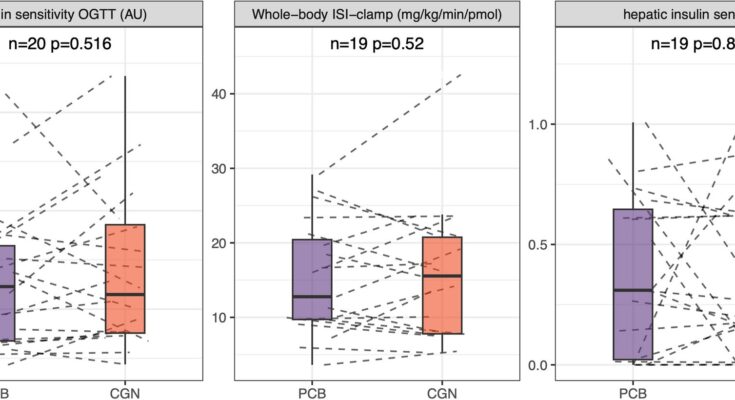
The food additive carrageenan (E 407) can be responsible for the development of chronic inflammatory bowel disease, ulcers, and increased blood sugar levels in animals. However, it is not yet known what effect carrageenan has on the risk of developing type 2 diabetes in humans.
This question has now been investigated in a clinical study led by DZD researchers Prof. Robert Wagner and Prof. Norbert Stefan. The research is published in the journal BMC Medicine.
Increasing the permeability of the small intestine
In the study, young, healthy men with a BMI of less than 30 kg/m² (average BMI 24.5 kg/m²) were given either carrageenan in addition to their normal diet, in an amount roughly equivalent to two to three times the daily dose consumed in the U.S., or a placebo. Both groups were observed over a period of two weeks. The results showed an increase in the permeability of the small intestine, most likely due to inflammation of the gut.
“Our investigation suggests that the consumption of carrageenan, similar to what has been observed in animal studies, can impair the barrier function of the intestine,” explains Prof. Wagner. “This could have long-term health consequences and increase the risk of inflammatory diseases.”
The data indicated that participants with higher body weight experienced a reduction in insulin sensitivity
The primary endpoint of the study was insulin sensitivity—the effectiveness of the blood sugar-lowering hormone insulin—which decreases early on before the onset of type 2 diabetes. Although the insulin action was not significantly altered by carrageenan in the 20 study participants, the data indicated that participants with higher body weight experienced a reduction in insulin effectiveness, especially in the liver, with increased consumption of carrageenan.
Furthermore, more overweight men tended to increase the inflammatory markers in the blood and show signs of inflammation in the hypothalamus—the brain region responsible for sugar metabolism and appetite—under higher carrageenan intake.
Further research on the health impacts of carrageenan is necessary.
“Our subjects were, on average, probably still too healthy to show significant metabolic effects from carrageenan,” says Prof. Stefan. “However, in older or overweight individuals, the effects could be stronger. To confirm this, further studies in these population groups are necessary.”
The researchers emphasize the importance of further investigations into the effects of carrageenan on the human body.
“Given the widespread use of carrageenan in foods, potential health risks should be taken seriously,” concludes Prof. Wagner. “It’s important that we understand how food additives can affect our health in order to make informed recommendations to the public.”
More information:
Robert Wagner et al, Carrageenan and insulin resistance in humans: a randomized double-blind cross-over trial, BMC Medicine (2024). DOI: 10.1186/s12916-024-03771-8
Provided by
Deutsches Zentrum fuer Diabetesforschung DZD
Citation:
Food additive carrageenan could disrupt intestinal barrier and increase risk of type 2 diabetes (2024, November 27)
retrieved 28 November 2024
from https://medicalxpress.com/news/2024-11-food-additive-carrageenan-disrupt-intestinal.html
This document is subject to copyright. Apart from any fair dealing for the purpose of private study or research, no
part may be reproduced without the written permission. The content is provided for information purposes only.
Source link




